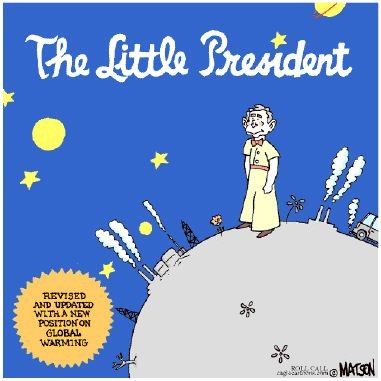Century Marks

In spite of it all: Every morning when David Scholer gets up he wishes that he could have just one more normal day to live. But life for the 68-year-old New Testament professor is by no means normal. The colorectal cancer he was diagnosed with five years ago has spread to both lungs, and he has asthma, diabetes and arthritis besides. Despite these maladies and the effects of chemotherapy, he continues to teach at Fuller Theological Seminary in Pasadena, California, where he is one of the most popular professors. Students say that he tells them that a sign of maturity is the ability to live with ambiguity. Known for his inclusiveness, he also tells them: “You have no right to oppose women in ministry until you have made a friend who is called to ministry and you’ve listened to her story. You have no right to make a statement about homosexuality until you have made friends with a Christian homosexual person. The conclusion you draw is another issue.” Through it all, he continues to ponder the meaning of the apostle Paul’s statement in 1 Thessalonians: “Rejoice always, pray continually, give thanks in all circumstances”—especially the last part (Los Angeles Times, June 5).
Success story, sort of: More people have been pulled out of poverty in the past 25 years than any other time in history, according to Nicholas Kristof. This should give pause to critics of globalization, since it is because of its impact that “hundreds of millions of Chinese, Indians, Indonesians, and Malaysians are moving into the middle class.” From the early 1980s through 2001, poverty rates worldwide were nearly reduced by 50 percent. Largely left out of this development is Africa, where the poverty rates have doubled (New York Review of Books, May 31).
Value of images: The battle over abortion has been in part a battle over images. And even pro-choice people would admit that pro-lifers have the upper hand: dramatic images of aborted fetuses and even videos of actual abortions have led many people to the pro-life side. But if the battle over stem cell research comes down to images, the pro-research side might have the advantage. As ethicist Daniel Callahan puts it, opponents of research “have a tough, probably impossible, time competing against those pictures of Christopher Reeve in a wheelchair, a breathing tube in his throat, or against the appeals of parents of diabetic children, or the families of those watching their loved ones being slowly destroyed by Parkinson’s or Alzheimer’s disease.” Moreover, we all know people with diseases that stem cell research is purported to help (Society, May/June).
Genesis, literally: A $27 million Creation Museum opened in late May in Petersburg, Kentucky. Its slogan is “Prepare to Believe,” and its mission is to counter the theory of evolution. The 60,000-square-foot building features figures of young children playing near animatronic dinosaurs—a scene the museum directors believe could have occurred some 6,000 years ago. There is a life-size sculpture of Eve handing Adam the forbidden fruit in the Garden of Eden. Other exhibits include one about the construction of Noah’s Ark and one claiming that the Grand Canyon could have formed around the time of Noah’s flood rather than millions of years ago, as asserted by most scientists. There is a planetarium, plus a theater with vibrating seats and sprays of water depicting the flood. Clark Stevens, codirector of Campaign to Defend the Constitution, said, “The ‘museum,’ as it’s called, is part of a campaign to deceive children and undermine scientific understanding in our country” (Religion News Service).
Poetic resemblance: Jewish theologian Neil Gillman once asked an Israeli astronomer, “Was the big bang loud?” Somewhat indignantly, the astronomer replied: “Of course not, there was no air so there was no sound.” When he found out that Gillman is a theologian, the astronomer smiled and said, “You know what? Big bang is much more theology than it is science. Both are poetry” (Cross Currents, Spring).
Count the carbon: Food travels an average of 1,500 miles before it reaches American kitchens. But consumers don’t think much about the fuel that food shipments require or the gashouse gases they create. Tesco, the largest supermarket chain in Britain, plans to do something about this ignorance. On the basis of a £5 million study it has authorized, Tesco will begin to put a “carbon label” on all 70,000 products the company sells, identifying the total amount of carbon dioxide produced through the production, transportation and consumption of each item (Orion, May/June).
Pillory Hillary: Two new books about Hillary Rodham Clinton are scheduled for publication by respected journalists: A Woman in Charge, by Carl Bernstein, and Her Way, by Jeff Gerth and Don Van Natta Jr. It appears that the more negative a book is about this presidential hopeful, the more it’s likely to sell. Consider the volumes already published: American Evita; Hillary’s Scheme; and Hillary Clinton Nude: Naked Ambition, Hillary Clinton and America’s Demise. And there are more to come, such as: Whitewash: What the Media Won’t Tell You About Hillary Clinton, but Conservatives Will; Liberal Fascism: The Totalitarian Temptation from Mussolini to Hillary Clinton; and Can She Be Stopped? (Chicago Tribune, June 3).
Sexual healing: Linette Servais has played the organ and sung in the choir of her New Franken, Wisconsin, Catholic church for 35 years. So she was shocked when her priest told her that she would lose her position in the church unless she stopped working for a company called Pure Romance, which sells sex toys at home parties attended by women. “I feel that Pure Romance is my ministry,” says Servais, who has a sexual dysfunction due to a brain tumor. She sees her job as a means of helping women with similar problems (AP).





